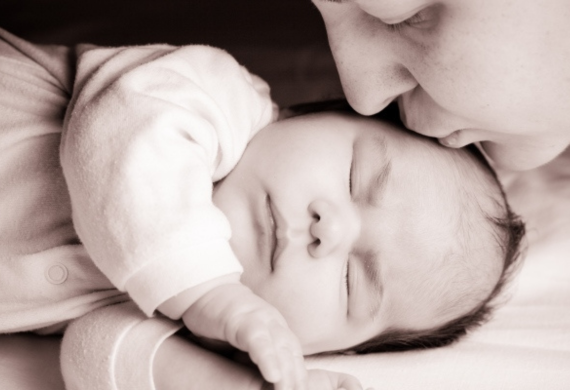
Midwifery instructors from APAC work together to reduce maternal and newborn mortality
By: WE Staff | Thursday, 30 March 2023
Midwives offer 90% of the services required for sexual and reproductive health. Yet, they only account for 10% of the workforce in the domains of adolescent, maternity, infant, and reproductive health.
Moreover, midwives save lives; if skilled midwives were present at every delivery in 2035, 4.3 million women and newborns may be saved. The need for high-quality midwifery education cannot be overstated. This is why a regional workshop was organised by the United Nations Population Fund (UNFPA) with participation from midwifery educators from 19 different nations.
"Ten women throughout Asia and the Pacific pass away giving birth or during pregnancy every hour. We can put a stop to this tragedy by working together to educate midwives under international standards "said Catherine Breen Kamkong, regional senior advisor for sexual and reproductive health and rights for UNFPA.
Ms. Catherine was speaking at a project that brought together international, regional, and national partners working on the subject in order to exchange knowledge and collaborate to produce a global 7-step action plan to improve midwifery education.
The two-year Bachelor of Science in Midwifery programme in Pakistan and the mentorship programme for midwives in Afghanistan, both developed by the Afghan Midwives Association with support from UNFPA, were among the successful initiatives highlighted during the conference.
The Lao Association of Midwives' president, Sengmany Khambounheuang, said: "I am glad to be here, to be a part of the group and to be able to exchange knowledge and practises and to know that midwives' talents may be increased, which is improving the way we work with midwives.
The Alliance to Improve Midwifery Education (AIME), a global alliance that UNFPA established in collaboration with ICM, WHO, UNICEF, Liverpool School of Tropical Medicine, Jhpiego, Laerdal Global Health, Burnet Institute, Maternity Foundation, and World Continuing Education Alliance, hosted the workshop at UNFPA with funding from the Johnson and Johnson Foundation.
Teachers from 19 countries were exposed to cutting-edge teaching methods and initiatives to improve the quality of midwifery education for better sexual and reproductive health, maternity and newborn care, and child and adolescent health services.
These included the UNFPA Faculty Development Programme, the Continuing Professional Development Framework, and the World Health Organization Midwifery Toolkit, all of which were developed in conjunction with Burnet Institute.
"The sessions have been quite educational. Having learned from educators from various nations, I feel inspired. That has pushed me to continue to enhance our programs. According to Ms. Senemelia Hataogo, head of the department of midwifery, obstetrics, and paediatrics at the Fiji National University, "I can see they have had many obstacles [in building midwifery education programs]; I have learned a lot from what they have shared."
Participants were also given the opportunity to critically analyse ideas and personal experiences that they may apply to their own countries. The International Confederation of Midwives' chief executive, Sally Pairman, stated: "Many times you find that someone has already come up with a solution to a problem that you have. This way, we're able to share our difficulties but also share all of our solutions, supporting each other to move forward."
In order to improve the calibre of midwifery education and reduce the frequency of maternal and newborn deaths in the Asia-Pacific region, education was a crucial step.
The President of the Papua New Guinea Midwifery Society, Ms. Mary Sitaing, stated that "when we train more midwives, it decreases the maternal mortality ratio in the nation, and we have seen considerable evidence to verify that, but we need to educate more."
Also, midwifery educators gained knowledge on the growth of midwifery faculty, the significance of ongoing professional education, and how to use technology and innovation to advance the development of midwives.
The midwifery educator for Pakistan's Bachelor of Science in Midwifery program, Ms. Erum Yaqub, stated, "It is a tremendous chance to be a part of this workshop, and we have received a lot of knowledge and engaged with other nations.
They learned about the tools available to midwifery educators for quick access to the most latest, scientifically supported clinical guidelines. I truly appreciate everything my coworkers have done to share best practises, cutting-edge laws, inventive technical fixes, and regional connections to raise the calibre of midwifery care for women and girls. Pros Nguon, Programme Analyst for Sexual and Reproductive Health and Midwifery at UNFPA Cambodia, said that through cooperating, we can achieve our common goal.
"We are faced with an unacceptable fact that every two minutes, a woman or a girl dies from preventable causes related to pregnancy or childbirth, and 99 percent of these deaths occur in low and middle-income countries," Dr. Eva-Charlotte Roos, Senior Health and Sexual and Reproductive Health Advisor at the Swedish International Development Cooperation Agency (Sida) said in closing the training.
She said, "Scaling up investment in educating and placing midwives in the health profession is necessary to address the critical shortage of 1 million midwives [and other sexual and reproductive health workers] globally. Sida would like to applaud UNFPA for taking the critical step of encouraging, motivating, and supporting nations to invest in trained and qualified midwives.
Most Viewed
- 1 Women's Health Startup HerMD Closing Doors Amid Industry Challenges
- 2 5 Famous Women in Indian Armed Forces
- 3 Saudi Women No longer Require Male Permission for Clothing Choices, says Prince MbS
- 4 Kolkata Medtech Startup Innovodigm Raises Rs 5.5 Crore Seed Funding Led by IAN Group
- 5 Yamunanagar's Kashish Kalra Honoured after Securing 111th Rank in UPSC Civil Services Exam
- 6 Madurai Appoints Its First Woman Corporation Head
- 7 IAS Vijayalakshmi Bidari Appointed as the new Nagpur Divisional Commissioner
- 8 American Entrepreneur Lucy Guo Overtakes T Swift to become Youngest Female Billionaire
- 9 ICC Women's World Cup 2025 Trophy Showcased at Indore's Holkar Stadium
- 10 Aparna Saxena's Beauty Venture AntiNorm Launches in India
- 11 Vidya Nataraj Co-Founded BlueStone Jewellery & Lifestyle files IPO
- 12 5 Women Freedom Fighters of India
- 13 Dr. G Krishnapriya appointed as CEO for Trichy
- 14 M3M & Sirona Partner to Introduce Menstrual Hygiene Vending Machines in 15 Locations
- 15 Punjab Govt launches SHE Cohort 3.0 Supporting Tech-led Women Startups
- 16 Indian origin Lawyer, Sweena Pannu appointed as the US New Superior Court Judge
- 17 The Aurora Tech Award recognizes 4 Indian Women-led Startups
- 18 Kerala's Republic Day parade featured an all-female tableau
- 19 Manisha Kabbur Becomes Karnataka's First Woman International Karate Coach
- 20 Director K. S. Ravikumar's Daughter Maalica Ravikumar Launches Life Coaching Company 'Evergrowth Academy' for Women
- 21 Leezu's Raises Pre-Seed Funding to Accelerate Growth in Sexual Wellness Industry
- 22 Sattu: Super-easy summer drink for PCOS gut healing
- 23 Swathi Nelabhatla creates Sitha App, India's First Women-Exclusive Gig Platform
- 24 7 Timeless Female Kathak Dancers & their Iconic Legacies
- 25 Meet 7 Iconic Women Architects of Modern India & their Most Impactful Work
- 26 This Woman-led Insuretech Startup is Helping Bridge the Education Financing Gap in India
- 27 Women Leaders Share Lessons Learnt from India Women's WC Win
- 28 5 Enterprising Women Founders Powering Singapore's Tech & Innovation Landscape
- 29 4 Women. 4 Stories. One Vision for Smarter, Stronger Healthcare
- 30 Global Gender Gap Narrows to 68.8%, But Full Equality 123 Years Away: WEF Report 2025
- 31 Changemakers: 7 Women Entrepreneurs Taking the Make in India Movement Forward
- 32 Meet Lucy Guo, The Youngest Self-Made Female Billionaire Disrupting Tech
- 33 How Women are Driving India's Festive Online Shopping Surge






